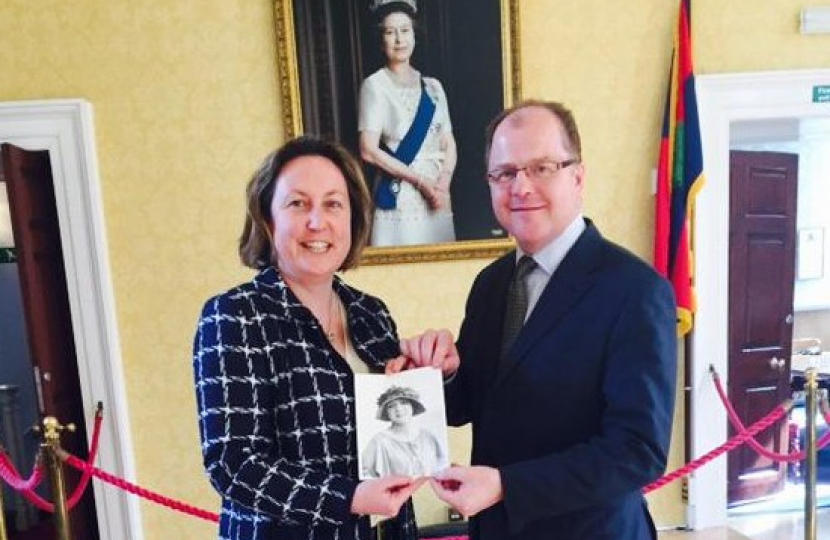
Our wonderful constituency has a long history, with North Northumberland sending MPs to Parliament since its enfranchisement by Henry VIII in the early 1500s. It is an immense privilege that constituents, from Berwick down to rural Morpeth, have trusted me, on three occasions, with both that rich history and to be their elected representative.
One particularly special part of our constituency’s history is the election of Mrs Mabel Philipson – exactly 100 years ago last week. On 31st May 1923, only five years after women were finally permitted to stand for election in 1918, Mabel became only the third woman to take a seat in Parliament (the fourth to be elected).
Much of her Parliamentary record is available to read online, including her focus on committee and constituency issues, especially housing, agriculture, infant welfare and women’s issues – issues which all ring true for my postbag today!
For example, in March 1925, when she questioned “the Minister of Transport whether he will consider the allocation of further grants from the Road Fund towards the maintenance of roads in rural areas other than first and second-class roads?”, I feel sure she would have been delighted by the £3.9m to fix Northumberland’s potholes in this year’s Budget.
Similarly, you may have supported my campaign earlier this year against an effective fishing ban off the shores of Lindisfarne, carrying on Mabel’s fight in Parliament for extended benefits for the “salmon fishers of Berwick-on-Tweed” when faced with bad weather conditions.
A few years ago, it was an honour to welcome Mabel Philipson’s great-nephew to Berwick, my colleague George Freeman MP, currently serving as the Minister of State for Science, Research and Innovation. Mabel’s record of innovating and improving conditions is one we all seek to emulate today and the examples of her commitment are endless: her standing up for our armed forces – both unemployed ex-service men as well as those who lose their spouse – or the Private Member’s Bill she presented, which ultimately became law – the Nursing Homes (Registration) Act 1927, to address the urgent need for registration and supervision of structurally defective premises and unqualified nurses.
Some things transcend party politics – and Mabel’s arrival in Parliament, where she was warmly received on both sides of the House of Commons, is one of them. Just as today, having a sense of humour must have helped, as the former stage and musical comedy actress she was, so I wanted to end by sharing one of the limerick quips of the time about the first three women in Parliament, which I hope she enjoyed:
Lady Astor, MP for sobriety,
Mrs Wintringham; She's for propriety,
Now Berwick-on-Tweed
With all speed has decreed,
Mrs Phillipson wins – for Variety

